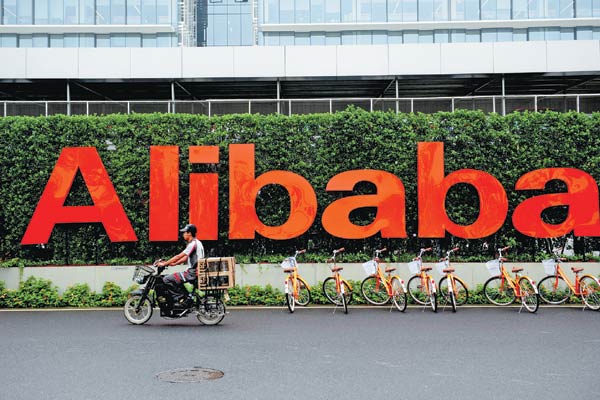
Early Alibaba bets look golden
China Daily, July 14, 2014
-
Alibaba's headquarter in Hangzhou, Zhejiang. [Xinhua]
Some current and former employees of China's Alibaba Group Holding Ltd are expected to become millionaires as the e-commerce conglomerate heads into what is expected to be one of the largest initial public offerings in global history.
According to Alibaba's draft prospectus, employees hold 26.7 percent of existing shares, which could translate into roughly $44.8 billion worth of unlocked shares, according to estimates from a Bloomberg survey of analysts.
As the largest e-commerce company in the world and owner of the Taobao shopping site, Alibaba Group is valued at $168 billion. But employees, who built the company from scratch over some 15 years, are hardly the biggest winners of the Hangzhou-based company's upcoming IPO in the United States.
Foreign investors have emerged as some of the biggest winners in China's booming Internet market.
Masayoshi Son, chairman of Japan's SoftBank, a top telecommunications and Internet investor, is likely to regain his position among the world's richest people due to the welltimed bet he made on Alibaba Group in 2000. With the $80 million he invested, SoftBank became Alibaba's largest shareholder with a 34 percent stake worth $57.12 billion.
Yahoo! Inc, a US-based multinational Internet corporation, which invested $1 billion and holds 23 percent of Alibaba, could also score multiple billions of dollars from Alibaba's potential $20 billion listing.
"It is difficult to find TMT (technology, media and telecom) companies which have an annual growth of 50 percent in developed markets," says Annabelle Long, managing partner with Bertelsmann Asia Investments, a venture capital firm owned by Germany-based Bertelsmann AG.
"Growth rates even as low as 20 percent in Europe or the United States are difficult to find. But companies with such strong growth momentum can be found everywhere in China," she says.
"TMT is a high-growth sector in China compared with traditional industries," Long says. She describes TMT's deep and promising potential as "a blue ocean".
While developed Western countries are growing slowly, China's GDP growth is still more than 7 percent a year-amid lackluster performance by the world economy.
Bertelsmann Asia Investments has invested in more than 30 startups in China since 2009 and more than half of them are in the TMT sector, Long says.
Four of the companies that Bertelsmann has invested in have gone public, including the US-listed Bitauto Holdings Ltd, a leading provider of Internet content and marketing services for China's fast-growing automotive industry.
"We've made a lot from their IPOs. It would be amazing if we had invested more," she says, laughing.
